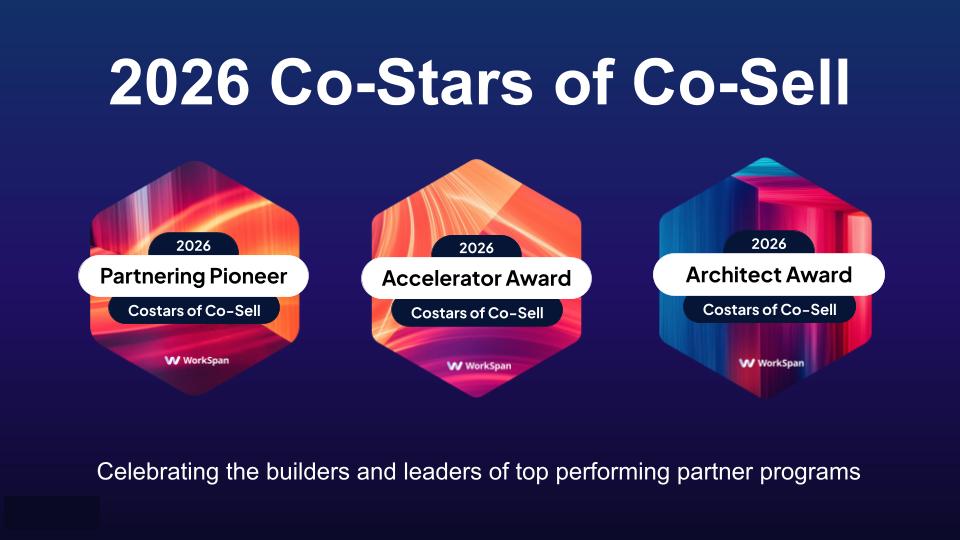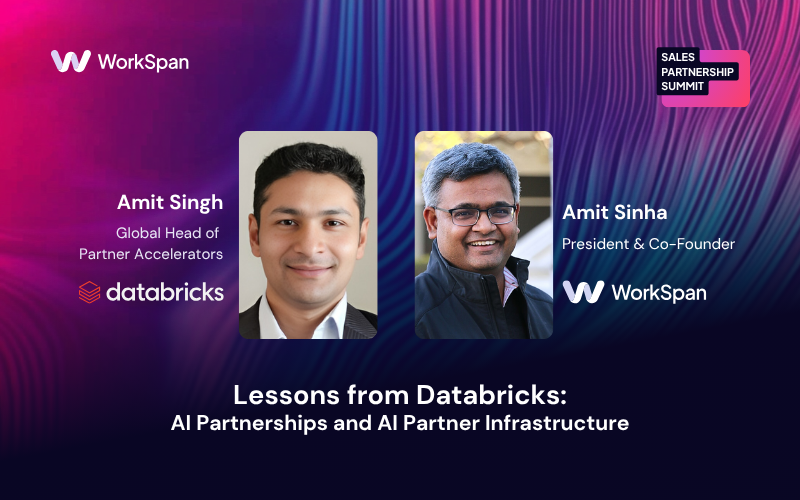
Partner Ecosystems have become a popular go-to-market strategy for businesses across industries, with over 11,000 professionals on LinkedIn alone having "ecosystem" in their job titles.
The stakes are very clear - businesses that orchestrate ecosystems or participate in other companies’ ecosystems are gaining an upper hand and are creating more resilient and exponential business models. Companies that don’t participate will be pushed down the value chain and be out-orchestrated into irrelevance.
However, to unleash the value of ecosystems, companies need to standardize, automate and measure their ecosystem processes.
In this blog post, we will explore the benefits that software has brought to sales and marketing, and how ecosystem automation is now being built to create better ecosystem-first businesses.
We will examine the current issues with ecosystem businesses, with a specific focus on co-selling and finally, we will introduce the concept of ecosystem automation and how WorkSpan is creating a solution to make it a reality.
Let's begin.
Sales Force Automation (SFA) Era (2000+)
We recognize Sales Automation is a must-have today, with solutions like Salesforce, Microsoft Dynamics and Zoho.
However, before the creation of Salesforce CRM, the sales landscape operated primarily off a rolodex model, that contained names and contact information of customers and potential customers all written by hand and a mixture of paper and spreadsheets.
The negatives associated with this way of doing things were numerous but included mistakes made in entering data manually, the time it took for sales reps to write out information, and a lack of visibility across the entire company on things such as pipeline.
Sales Automation tools provide businesses with a suite of tools and features to manage their sales processes, workflows to convert pipeline to revenue predictably and a shared vocabulary of metrics (e.g. “Sales Qualified Lead - SQL”, Conversion Metrics) to align everyone.
This propelled CROs and established Sales Operations with standardized metrics, processes and best practices.
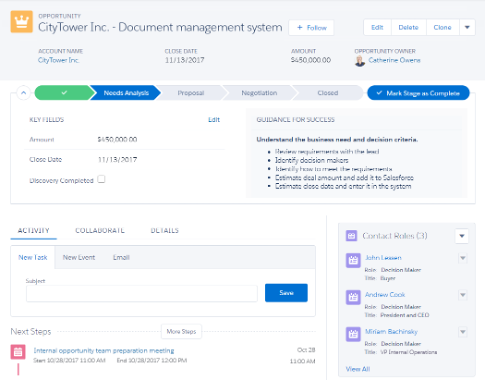
Marketing Automation (MA) Era (2010+)
Just as Sales Automation led the way for sellers, marketing automation brought the much-needed process and analytics rigor to every marketer.
Before marketing automation became a thing, marketing teams when trying to run things such as email campaigns, had to create batches of emails, send them without any tracking, and then replicate this again and again until somebody responded. The problem got compounded with web, social, events, and brand campaigns, each with its unstructured and non-scalable processes and disparate buyer data.
Marketing Automation tools such as Hubspot, Marketo, Eloqua, and Pardot were created specifically to address these problems, automate marketing sequences and workflows and a shared vocabulary of metrics (e.g. “Marketing Qualified Leads - MQL”, Conversion Metrics) to align everyone emerged.
For instance, Hubspot Marketing Hub is a cloud-based marketing automation platform that helps businesses of all sizes to automate their inbound and outbound marketing processes and attribute success to the right campaigns across email, social media, mobile, and web.
Gone are the days of blindly firing off emails, you now have access to a beautiful dashboard that allows you to analyze email performance, tweak and improve.
This propelled CMOs and established Marketing Operations with the responsibility of standardized metrics, processes and best practices.
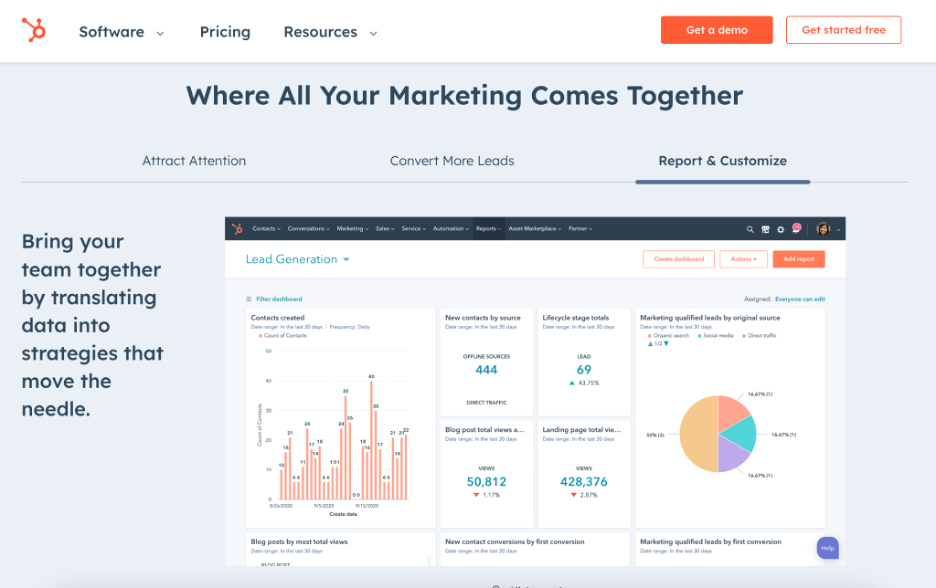
Ecosystem Automation Era (2020+)
We are in the “decade of the ecosystem” and the gap between the expected value from “Ecosystem Led Growth” (ELG) and investment in “Ecosystem Automation” needs to be bridged.
Modern ecosystems are alive and dynamic-companies need to rapidly orchestrate or join other ecosystems. However, partnering teams have to deal with the lack of shared infrastructure for teaming, manual processes that don’t scale, data silos that break across company boundaries, and lack of security as spreadsheets rule.
For instance, co-selling is a “must-have” process in partnering today - it's the bedrock of how Cloud Providers, ISVs, GSIs, and Service Providers sell for subscription, consumption, and migration of enterprise solutions. It is a coordinated selling approach in which two or more companies work together to sell their complementary products or services to a shared customer base. (Read more: Check out our “Ultimate Guide to Co-Selling”).
However, partner teams across companies need Ecosystem Automation for “Co-Sell” and must deploy capabilities that automate the following:
- Easily and securely connect with Partner Ecosystem (think “LinkedIn” vs. “My or Your Partner Portal”),
- Automate data sharing policies across your ecosystem with privacy controls (vs. being “a spreadsheets jockey”),
- Connect disparate systems on both sides (vs. manual deal registrations on the dominant partner’s portal)
- Conduct the co-sell workflow at scale (vs. different ad-hoc processes per partnership)
- Measure co-sell metrics (vs. reward ambulance chasing or focus on large /loud partners only). Let's look at each one of these automation steps.
Let's unlock the requirements for Ecosystem Automation across these 5 requirements.
1. Easily & Securely Connect with Partner Ecosystem
Ecosystem Automation requires partner professionals across companies to have a shared space where they can securely connect using each company’s Single Sign-On (SSO). This ensures that only authorized employees can access it, but new ones can be invited or onboarded with automated eligibility. No more figuring out who and where to do “teaming”, the system simply knows and each company can govern it independently. When new employees join a partnership, they onboard onto a shared space with shared history and hit the ground running and past employees lose access dynamically for security.

Litmus Test for Ecosystem Automation - Have you automated you and your partners to join with their own security access policies (SSO)?
Impact of Not Doing this Automation - Without this automation, the burden of governing and managing access will outrun your team’s bandwidth and create security holes leading to partners not sharing data with you in an automated way.
2. Automate Data Sharing Policies
Ecosystem Automation requires data sharing policies to be standardized and enforced at scale. This ensures you share data that enables co-sell but keeps private data private. The same capabilities are there for the partner - giving them the comfort to share.
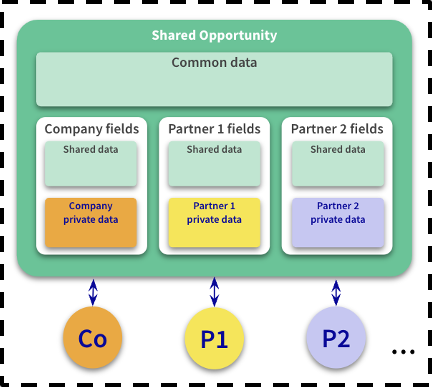
Litmus Test for Ecosystem Automation - Do you have a data sharing policy for co-sell opportunities? It's a Yes or a No - there is no grey area.
Impact of Not Doing this Automation - Each partner manager in the field will decide what to classify and declassify based on spreadsheets downloaded. Security teams will shut down co-sell with such an approach and end ad-hoc co-sell efforts.
3. Connect Disparate CRM Systems on Both Sides
Ecosystem Automation requires connection to CRM systems and automation of opportunity sharing on both sides. Instead of having to work out of spreadsheets and disparate systems, enter data in your own CRM and have it automatically update in your partner's CRM. When you select a partner in your CRM, also decide and enable opportunity registration in realtime with one click.
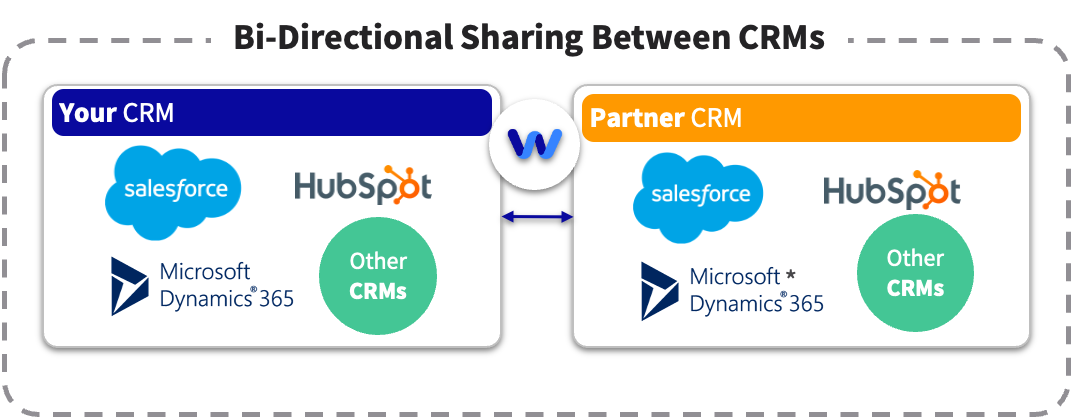
LitmusTest for Ecosystem Automation - Does your automation allow both parties to connect their CRM and update the same opportunity?
Impact of Not Doing this Automation - Each partner manager will manually register and keep the deal updated every week leading to hours of manual work. This work can only be done for only top partners and not at scale with every partner.
4. Conduct Co-Sell Workflow at Scale
Ecosystem Automation requires cross-company workflow automation and should allow each company to participate in the process and add its own business actions. Co-sell workflow can originate from either company, so workflows should support both incoming and outgoing opportunities and have standard co-sell stages as shown below. These stages are different from each company’s own CRM sales stages and can be mapped to the standard co-sell stages.

While a direct sales motion has closed-won or closed-lost stages for example, a co-sell opportunity may end in
- Won/Won (Where both co-sell partners have won a deal)
- Partial Won (Where one partner has won and the other lost)
- Lost (Where neither side has won)
Similarly workflow needs to support stage-specific business actions such as connecting account executives across companies via email / Slack / Teams or triggering co-sell incentives.
Litmus Test for Ecosystem Automation - Does your ecosystem automation have a standard workflow for co-sell orchestrating each partner to perform business actions they need to do to participate in the flow?
Impact of Not Doing this Automation - If not done, co-sell as a standard business process will not scale and each party will not be held accountable for their actions in a timely way. This lack of automation will result in every partner doing it differently or not doing it all.
5. Measure Co-Sell Metrics
Ecosystem Automation with a standard workflow and data model, which should enable you to prepare partner plans with goals and achievement metrics that are standardized across all partners and the larger ecosystem. It should provide values for your Co-Sell Revenue and Pipeline, Co-Sell Win Rate and Co-Sell Velocity, as well as Ecosystem Sourced Opportunities, Pipeline andRevenue. In addition, you can not only report on your own data but also shared partner data for signals.
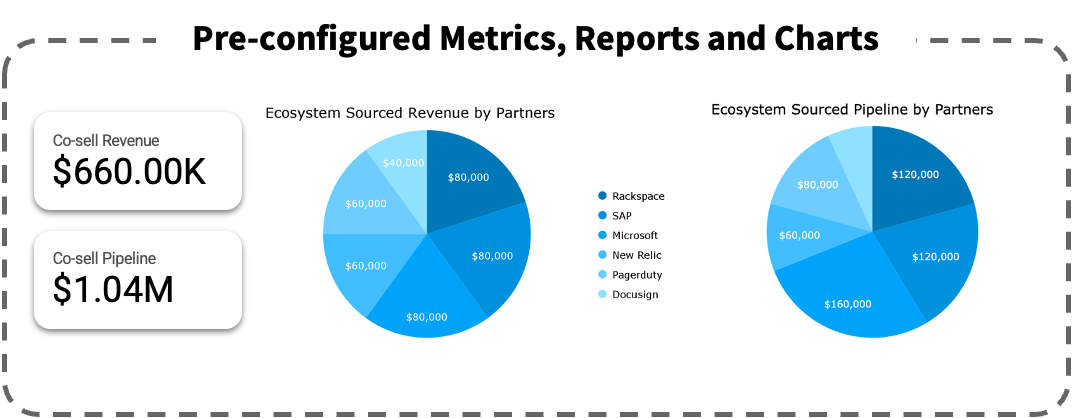
These metrics help Chief Partner Officers quantify the exponential impact we all know partner teams provide but are unable to quantify and prove value to C-Suite. Now there is a bright line connecting partnering goals and execution to revenue growth directly.
Litmus Test for Ecosystem Automation - Does your ecosystem automation have standard metric definitions? Do you ask each co-sell partner to set mutual goals with you?
Impact of Not Doing this Automation- Unable to measure and grow co-sell as a partner best practice throughout the company across all its partnering. Unable to quantify, prove impact and ask for investments into growing the team.
Conclusion
Partnerships have become a popular strategy for businesses, and managing ecosystems has become crucial for their growth.
To achieve this growth, businesses need to optimize their processes and systems, and ecosystem automation software can drive greater growth and collaborative relationships with partners.
The need for ecosystem automation software has been increasingly important, particularly in co-selling, where integrating systems and processes has become complex, leading to the duplication of work, manual workflows, and inaccurate data tracking.
The WorkSpan Co-Sell App offers businesses a solution to bring order to the chaos that currently exists with co-selling and can revolutionize the way in which you currently partner.
If you are serious about co-selling partners, then book a demo and see how we can help.
And for more partnership tips and best practices, check out the WorkSpan blog.
Happy Partnering!
Heading
Heading 1
Heading 2
Heading 3
Heading 4
Heading 5
Heading 6
Lorem ipsum dolor sit amet, consectetur adipiscing elit, sed do eiusmod tempor incididunt ut labore et dolore magna aliqua. Ut enim ad minim veniam, quis nostrud exercitation ullamco laboris nisi ut aliquip ex ea commodo consequat. Duis aute irure dolor in reprehenderit in voluptate velit esse cillum dolore eu fugiat nulla pariatur.
Block quote
Ordered list
- Item 1
- Item 2
- Item 3
Unordered list
- Item A
- Item B
- Item C
Bold text
Emphasis
Superscript
Subscript



.png)
